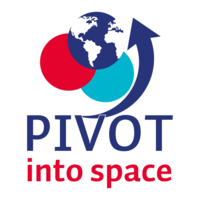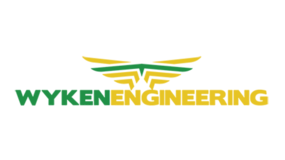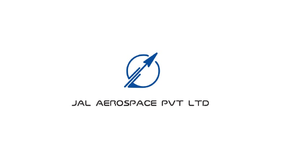Space
The UK offers exciting opportunities across the space sector. The growing market has great potential for companies operating in aerospace and adjacent industries. The MAA has been increasing its work in the space sector in recent years to support the supply chain with understanding the market and leveraging the opportunities.
The Midlands Space Cluster now has it's own website : Welcome to the Midlands Space Cluster
** NEW OPPORTUNITY **

Space Ecosystem Commercialisation Programme (SECP): Rapid R&D Grants and Expert Support from your Local Space Cluster
SECP is a £1.4 Million programme, part funded by the UK Space Agency to help companies across 6 regions in England to develop new technologies for the space industry and unlock commercial opportunities.
Find out more on the Midlands Space Cluster website here
MIDLANDS SPACE CLUSTER
The Midlands hosts world-renowned space research institutions with over 900 academic, research and technical employees across eight universities. The Midlands Innovation Space Group represents one of the largest collections of space-related expertise in the world and cutting-edge development facilities at Space Park Leicester. In addition, the region is home to the National Space Centre and the Manufacturing Technology Centre.
The region is ideally positioned to support the development of key national capabilities including Space Domain Awareness, In-Orbit Servicing, Assembly and Manufacturing, Space Data for Earth Applications and Position, Navigation and Timing.
The Midlands Space Cluster aims to bolster and expand space-related businesses within the region, supporting both existing companies and new entrants with the technical expertise to pivot into the space sector. This involves three key activities:
- Establishing the requirements of the space business nationally and internationally through engagement with agencies, catapults and primes.
- Cataloguing and developing space capabilities in the region.
- Hosting events that connect companies with the requirements and the funding agencies that can assist them to move forward at pace.
The capabilities, organisations and facilities come together to create a region capable of delivering the technology and systems for the next generation of the UK space mission.
PREVIOUS PROGRAMMES
PIVOT INTO SPACE

Pivot into Space is a cross-sector innovation programme to support smaller companies in the Midlands to diversify into upstream space markets. This encompasses space manufacturing (including the design, manufacture of spacecraft, payloads, systems, subsystems, and components) as well as the infrastructure required to launch and operate them.
The £500,000 project is funded by the UK Space Agency. It is one of 18 projects that form part of a £6.5 million support package designed to boost the space sector across the UK by funding high-impact, locally-led schemes and space cluster development managers.

The aim
The space sector has grown four times faster than the broader UK economy over the last decade and is valued at £18 billion with 49,000 people employed in high-productivity jobs. The government’s recent National Space Strategy sets out the long-term vision for how the UK can establish itself as one of the most attractive and innovative space economies in the world.
As the manufacturing heartland of the UK, the Midlands is home to a supercluster of companies with a wealth of capabilities and technologies that are required by the growing space sector. Pivot into Space seeks to facilitate the transition of much-needed capabilities into the space sector supply chain by supporting smaller companies to:
- Learn about the space sector.
- Gain insights into customer requirements and regional R&D assets.
- Access grant funding and support for innovation projects.
The approach
As part of the Pivot into Space project, Midlands companies have had the opportunity to apply for grants of up to £50,000 for innovation projects, and benefit from a range of non-financial support packages too.
- Engaging with space customers: At the beginning of the project, the team engaged with nine space primes, tier 1s and industry bodies to understand their current technology challenges, so these requirements could be included in the application process for innovation projects. This engagement continues. Participating companies have had the opportunity to attend networking events, webinars and exclusive visits to hear from these leading organisations.
- Outreach: Early in the programme, the MAA leveraged its strong network across the Midlands, reaching out to over 1,000 companies with a view to growing the Midlands Space Cluster and attracting strong applications for space innovation projects.
- Capability mapping: Capability assessments were carried out for companies interested in the space sector. These were used to assess the companies’ readiness to engage in the space sector in terms of their technologies, capabilities and operational readiness. This activity will continue throughout the project. Participating companies will be included in a business directory on the Midlands Space Cluster website, designed to promote space businesses in the region.
- Innovation project support: Eight projects – which are currently underway – were awarded funding through a two-stage assessment process. Details can be found here.
- Knowledge sharing: The project team have been sharing space insights at events, workshops and at Farnborough Airshow. Participating companies have also had the chance to share lessons and showcase their products, services and capabilities.
The impact
- Companies gain vital insights into the space sector: Pivot into Space is proving instrumental in helping MAA members and aerospace supply chain companies learn about space and consider whether this growing sector is a good fit for their commercial strategies. Companies have benefitted from insights from the UK Space Agency, European Space Agency and space primes into the technologies of interest right now, and what it takes to work in the space industry, helping them decided on their focuses.
- Companies gain confidence that they have capabilities for space: Following the capability assessments, many companies have realised that they already have the capabilities required for the space sector. They are now looking at developing strategies to enter the market. Networking events have enabled companies to develop contacts and relationships with space academics and other space companies in the region, notably at Space Park Leicester.
- Companies are commercialising technologies for space: The nine companies that were awarded Pivot into Space grants have undertaken innovation projects to pivot existing technologies into the space sector with a view to commercialising them. Several already have interested customers, some of which are involved in the development process.
- The MAA’s capacity to support companies into space has grown: Due to the growth of the space sector, the MAA’s team is growing and there are now three space experts in our Technology Development Group. These new members have helped with the selection and approval of Pivot into Space innovation projects. They have also been sharing their expertise within the group which means that all the technology team have additional insights to share with the MAA members and supply chain companies they are supporting in the aerospace sector.







